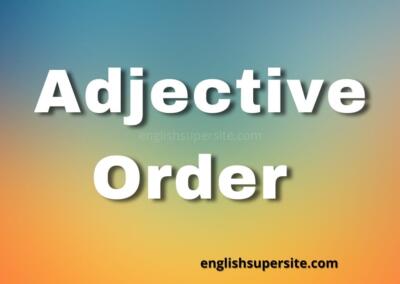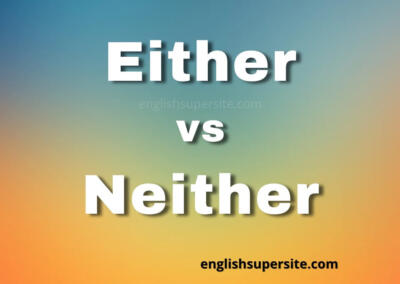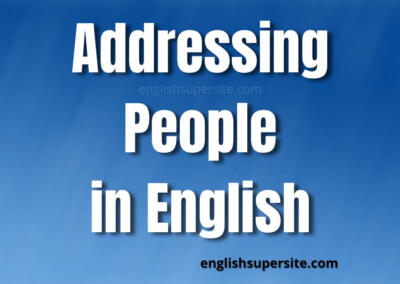
Confusing Words
Confusing Words: Clarify Commonly Misused Terms
Confusing words are terms that often look or sound similar but have different meanings. Examples include “affect” vs. “effect”, “there” vs. “their,” and “complement” vs. “compliment.” These words can create confusion in writing and speaking. Learning the differences between them helps you avoid mistakes and communicate more clearly.
Mastering confusing words makes your English more precise and professional, whether in writing or conversation.
No results found.
Related Posts

Learn Adjective Order in English! A Guide to using OSASCOMP correctly. Learn with examples for clear, perfect and ...

EITHER vs NEITHER - Either or Neither! When and how to use Either and Neither! Study and learn the differences ...

Addressing People in English | English Super SiteHow to address people in English!How to address ...


